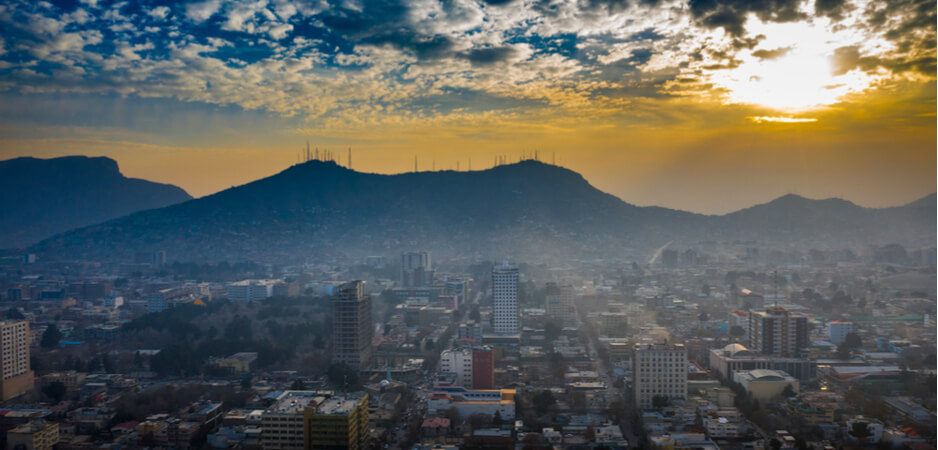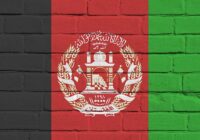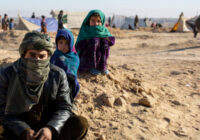It is important that any peace deal should further legitimize the current state, strengthen the post-2001 democratization process and include all the parties involved in the conflict.
With the US stating its intention to withdraw troops from Afghanistan, the doors have opened for political settlement to end more than 17 years of war. Prominent Afghan political leaders, a document by the RAND Corporation and the US peace envoy all call for an interim government as a political settlement to end the conflict. With an interim government now a possible solution, what are the preconditions for its establishment, and how feasible is it in current situation?
To answer these questions, Dr. Omar Sadr, of the Institute for Strategic Studies in Kabul, has undertaken a research project, Political Settlement of the Afghanistan Conflict, using the existing literature and conducting interviews with Afghans from various constituencies who have sufficient knowledge of the Taliban. Since many argue for a political settlement as a solution to the Afghan conflict, Sadr’s research aims to explain four forms of institutional mechanisms for such a settlement: participation of the Taliban in the elections, decentralization of power, a power sharing arrangement and an interim government.
Some suggest an interim government as a viable political solution because the Taliban, having fought the government for 17 years, is not interested in sharing power with its adversary. The Afghan government has violated and suspended the constitution multiple times since its formation in 2014, and the October 2018 parliamentary election was a disaster, showcasing that Kabul is unable to conduct transparent and fair elections due to mismanagement, a lack of funds and widespread insecurity across the country. Through an interim government, however, the Taliban can be incorporated into the Afghan political system.
Preconditions for an Interim Government
Based on Sadr’s research findings, five preconditions need to be in place for the formation of an interim government. First, this setup is recommended in places where the state has not collapsed and institutions have remained largely intact. Today, most of the Afghan state institutions are functioning, and any peace agreement should empower them further.
Second, the government must not be delegitimized and must have a high level of control over the means of violence and other state institutions. Sadly, this is not the case in Afghanistan, as the Taliban has multiple times declined the Afghan government’s proposal for direct negotiations. Recently, representatives of popular political parties bypassed Ashraf Ghani’s administration and participated in direct talks with the Taliban in Moscow in February.
Third, foreign or international parties involved in the conflict must show a desire to end the fighting. In a complex conflict like Afghanistan there are multiple patrons. The United States and NATO are two major guarantors of the Afghan government. On the other side, Russia, Iran, China and especially Pakistan have significant influence over the Taliban. At present, evidence indicates that there is lack of consensus and trust between regional and international stakeholders. Iran doesn’t trust the US, Saudi Arabia and the UAE, and blames Saudi and Emirati intelligence for attacks in Iran, alleging that US intelligence spies on Iran from Afghan territory.
India and Pakistan, the two major regional players, both compete for influence in Afghanistan. Just recently, the tensions between the two nuclear powers escalated following a suicide attack in India-administered Kashmir. Delhi blamed Pakistan, and Indian fighter jets carried out bombing raids inside Pakistan in retaliation.
Fourth, parties actively involved in the war must opt for democratic solutions, and their foreign patrons should encourage them in this. The Afghan state and numerous political parties are willing to accommodate the Taliban in a democratic process, but the group has so far refused to take part. The Taliban also rejected President Ghani’s offer to take part in last year’s election, claiming that major political decisions are taken by foreigners. The fear of taking power through elections may also come from a lack of sympathy for the Taliban among the general public. According to a nationwide survey conducted in 2018 by the Asia Foundation, over 82% of Afghans reported “no sympathy at all” with the armed group.
Finally, there has to be a symbolic figure who is widely respected by rival factions and most of the population — someone who can help to facilitate contacts and communication. If not impossible, it seems very challenging to find such a figure in Afghanistan today.
On top of this, the Asia Foundation finding show that the country is divided along ethnic lines. Pashtuns are most likely to have higher opinion (32%) toward their member of parliament than other major ethnic groups such as the Tajiks (21%), Uzbeks (19%) and Hazaras (17%). According to the survey, some 42% of Afghans think peace with the Taliban is impossible. By ethnicity, the differences are significant: Some 64% of Pashtuns (who dominate the Taliban) reported that peace is possible compared to just 51% of Tajiks, 43% of Hazaras and only 39% of Uzbeks.
With some of the above conditions not in place, one can conclude that the interim government is not a feasible political solution for Afghanistan at the moment. Aside from the necessary preconditions not being met, some view the Taliban’s motives for seeking peace with suspicion. After all, if the Taliban really wants peace, why has it intensified its fight with the Afghan government? For example, on April 4, a deadly attack on a government compound killed 20 Afghan soldiers in western province of Badghis. With the continuation of attacks, many think the group may topple the government if foreign troops leave the country.
There are also widespread doubts about the Taliban’s ability to abide by democratic values such as freedom of speech, gender equality and free elections — all of which Afghanistan achieved after the Taliban was forced out of Kabul in 2001.
Lessons from the Past
Based on the Sadr’s findings, there are lessons to learn from the Bonn Conference if there is to be a lasting peace in Afghanistan. The conference was held in December 2001 in Germany with the intention to regenerate the Afghan state after US-led military intervention toppled the Taliban. The conference was hastily organized, and participants did not represent all of the key constituencies of Afghanistan. For example the Taliban, one of the main parties to the conflict, was not invited.
Peace talks are a time-consuming process, especially when one party rejects sitting down at the negotiating table, like the Taliban is currently refusing to do with the Ghani administration. Any call for a rush peace agreement would not end the conflict, but would most likely produce further grievances that may potentially escalate the war.
The next criticism is that the Bonn process failed to accommodate the changes in the socio-political landscape of Afghanistan that came into being through the resistance against the Soviet invasion and against the Taliban. Likewise, a peace agreement with the Taliban should not negate the social transformation Afghanistan has undergone in past 17 years in terms of proliferation of modern democratic norms, a generational shift and the devolution of power.
In the current scenario, multiple rounds of peace talks have made progress, especially over the course of 16 days in March when the Taliban and the US agreed on counterterrorism assurance and a troop withdrawal from Afghanistan. The level of optimism is at its highest for reaching a political settlement. However, any political settlement should be arranged cautiously and with patience given the lack of regional consensus and a roadmap for what happens post-NATO withdrawal.
It is important that any peace deal should further legitimize the current state, strengthen the post-2001 democratization process, include all the involved parties and contribute to state building and the stabilization of Afghanistan.
The views expressed in this article are the author’s own and do not necessarily reflect Fair Observer’s editorial policy.
Support Fair Observer
We rely on your support for our independence, diversity and quality.
For more than 10 years, Fair Observer has been free, fair and independent. No billionaire owns us, no advertisers control us. We are a reader-supported nonprofit. Unlike many other publications, we keep our content free for readers regardless of where they live or whether they can afford to pay. We have no paywalls and no ads.
In the post-truth era of fake news, echo chambers and filter bubbles, we publish a plurality of perspectives from around the world. Anyone can publish with us, but everyone goes through a rigorous editorial process. So, you get fact-checked, well-reasoned content instead of noise.
We publish 2,500+ voices from 90+ countries. We also conduct education and training programs
on subjects ranging from digital media and journalism to writing and critical thinking. This
doesn’t come cheap. Servers, editors, trainers and web developers cost
money.
Please consider supporting us on a regular basis as a recurring donor or a
sustaining member.
Will you support FO’s journalism?
We rely on your support for our independence, diversity and quality.







